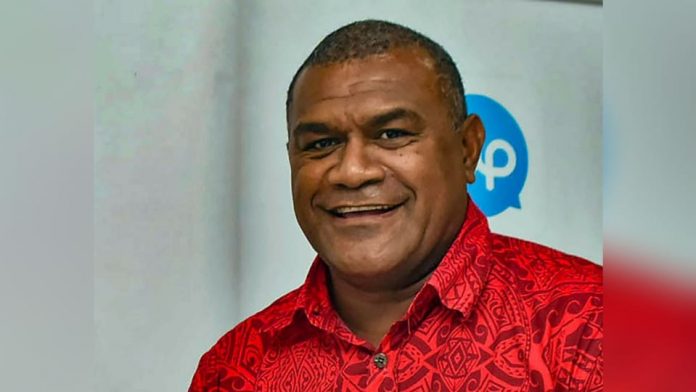Two international statistics organisations have written to Fiji’s Prime Minister Voreqe Bainimarama to express their concern over the dismissal of the Fiji statistician, Kemueli Naiqama, as CEO of the Fiji Bureau of Statistics from office.
Naiqama’s contract was terminated over the release of data desegregated by ethnicity and religious belief in the Fiji Household and Income Survey (HIES) last month.
At that time the Ministry of Economy said the decision for “failure to comply with Section 5 of the Statistics Act 1961…and that the data on ethnicity and religion was “extrapolated from erroneous sources and which exceeded the established scope of the survey’s data collection.”
However the International Statistical Institute (ISI) and the International Association for Official Statistics (IAOS) are concerned that in sacking Naiqama, “the government’s action is a breach of the UN Fundamental Principles of Official Statistics and would in many countries be seen as unconstitutional.”
In a letter sent to Prime Minister Bainimarama on Monday, ISI President Stephen Penneck and IAOS President Misha Belkindas write that Fiji’s Minister for Economy “took a view on the methodology of the [HIES] survey, and used this as a reason for the dismissal, without apparently seeking professional statistical advice.”
They call on the government to:
*Have the Household and Income Expenditure Survey report independently reviewed by professional experts to determine “the degree of confidence that can be placed in their findings”
*Establish a proper administrative process to determine the context in which the stated conflict with the actions of the Government statistician has occurred
*Appoint any new government statistician by a process that prevents politicisation of the role
* Clarify and reinforce the extent of independence of the Fiji Bureau of Statistics.
Naiqama has stood by the HIES, writing: “This is an honest, clear and realistic snapshot of the poverty situation in Fiji according to internationally accepted standards and categories, and nothing else.”
Penneck and Belkindas write that under Principle 2 of the United Nations Fundamental Principles of Statistics: “To retain trust in official statistics, the statistical agencies need to decide according to strictly professional considerations, including scientific principles and professional ethics, on the methods and procedures for the collection, processing, storage and presentation of statistical data.”
Penneck and Belkindas contend that the termination of Naiqama’s employment, “by political direction without due process would be a breach of this principle and would in many countries be seen as unconstitutional. It is the Government Statistician who guarantees to those outside the country that their trust in official statistics is well founded. The Government of Fiji needs to act urgently to provide vindication of its actions independent of political process so it can rebuild trust in Fiji statistics.”
Noting that official statistics are used by “investors, international rating agencies and others who trade and engage with Fiji”, they write “when such persons are removed from office for what appear to be political reasons, then the practice of science in other fields is more likely to come under political pressure. If the issues we have raised are not resolved, there will be many who have heightened concerns about the integrity and independence of any persons involved in producing trustworthy evidence about the conditions and progress of Fiji in the future.”.
SOURCE: ISLANDS BUSINESS/PACNEWS














